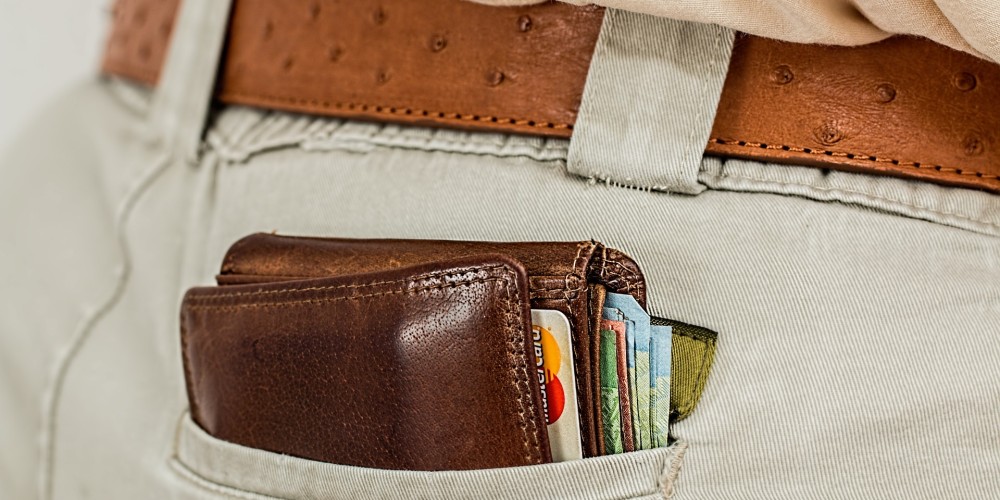Are we heading towards a cashless society?

Many years ago I visited a European capital after a travel hiatus, and tried to rent a car from the airport. To my surprise, none of the car-hire companies would accept my money. Cash, in their own currency. Legal tender. No deal.
When I asked why, I was told it simply wasn’t worth their while to carry the risks and costs of handling cash at satellite stations. I could only hire a car for cash at head office. Being used to Nairobi, where shopkeepers would baulk when seeing your credit card and ask you to pay cash if possible, I had done the prudent thing when travelling: carry a stash of foreign currency. Which turned out to be the imprudent thing.
The trick then was to have an array of credit and debit cards at the ready. That was then. Today, even the world’s leading card companies are facing an existential threat and are having to reinvent themselves rapidly. The entire world is moving away from not just cash but also physical cards very rapidly. If you walk around any major city of the world now, you will see folks flashing or tapping their phones, or waving contactless cards, to make payments.
This trend is particularly prevalent amongst the young. The Guardian newspaper estimated that one in eight young adults in Britain might carry not a penny in cash on them. For these youngsters, cashless is not tomorrow; it’s right now. They use Apple Pay and Android Pay to tap and go. According to Worldpay, six out of 10 young adults would actually prefer not to use cash at all.
The old fogies resist hard when these new methods arrive, but they too take to new technology fast when they realize how convenient it is (aren’t your grandparents now on WhatsApp?). Since Apple Pay launched in London last year, 8 million journeys on the underground trains have been paid for by iPhone users tapping their phones. Now Android Pay, with an even bigger user base, is on the scene.
This is not a first-world phenomenon. Here in Kenya we need no introduction to mobile money; we pioneered it. Our homegrown MPesa innovation led to massive uptake and a slew of competitors, making Kenyans the leading users of mobile payments in the world. Mobile money transfer morphed quickly into mobile payments and mobile banking products. Kenyans young and old can be seen shopping, taking taxis and paying for services without reaching for a wallet or signing their names.
All this is occurring before widespread usage of cryptocurrencies like Bitcoin has kicked in. When that happens, all will change. What is interesting is that the Bitcoin experiment, with all its risk, volatility and uncertainty, is still going strong. The Blockchain technology that underlies Bitcoin is the real game-changer: the distributed ledger system is expected to have a profound impact on all payment systems.
Banknotes and coins do have their defenders. They argue that cash is valuable because it can’t be rejected; because using it confers anonymity and privacy; and because it does not require any additional technology or gadgetry (or battery life or internet connection) to use. But consider the costs of using cash: the costs of currency issuance, security, insurance and transportation, for example. Cash fuels the black economy and corruption; it spreads disease by going from hand to hand; it is easily destroyed; it can only be used within the country of issue.
Going cashless will equally have its risks. There are many digital scams and hacks to come. But gaze out five or ten years from today and you will see that we are likely to resolve them. Whether you like it or not, your use of physical cash will decline. The wise thing to do then is to get familiar with all the new options. As an individual, wake up to what your smartphone now offers and start using it to pay for things.
If you’re a business, stop fighting progress. Your days of hiding cash in your socks or underwear as you walk to the bank are hopefully already behind you; but using cash tills and cash-in-transit services may also become a faded memory soon. In Africa you will face a tidal wave of young consumers who are mobile-mad and Uber-euphoric, who expect payments to be contactless and money to be a set of digits on a screen, not crumpled, smelly notes in a wallet. Will you be ready for them?
(Sunday Nation, 21 August 2016)

Buy Sunny Bindra's new book
The X in CX
here »
Popular Posts
- My books of the yearDecember 14, 2025
- Confessions of an explaining personDecember 7, 2025
- Here’s why you should become foolishNovember 30, 2025
- How to listen, really listenNovember 16, 2025
- Is AI hiring your company into oblivion?November 23, 2025















